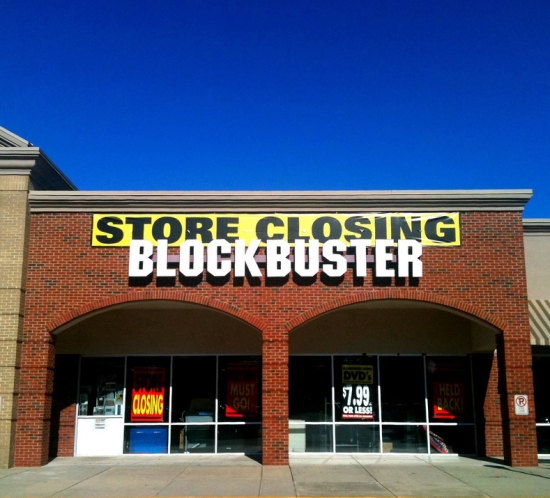Although UK store administrations have slowed dramatically since the start of the year, several brands are finding a lack of consumer demand and shrinking profit margins challenges which prove to be insurmountable in the long run. As a result, administrations and large scale commercial property sell-offs have once more begun to creep up, with many well-known chains taking this course of action hoping to generate interest from prominent investors.

This has been the case for entertainment chain Blockbuster, which entered administration for the second time this year last week. Now it has announced that it intends to close around a quarter of its UK branches, resulting in a number of job losses.
Altogether, 72 Blockbuster stores out of the overall network of 264 have been earmarked for closure. In total, it is expected that 452 staff will be made redundant in the coming weeks.
In a statement from Moorfields Corporate Recovery, administrators covering the Blockbuster case said; “This has not been an easy decision to make and we acknowledge that, with Christmas on the horizon, this will be extremely upsetting news to a large number of people, most of all those affected by the store closures.
“We must reiterate that, as part of our attempts to turn around the business, today’s decision is necessary if parts of Blockbuster are to be saved and a buyer found.”
Administrators have already held talks with several interested parties regarding the buyout of certain parts of the business, and pledged to release a further update within the next seven days. However, they did admit that much of the interest generated by the administration process concerned portions of the commercial property portfolio as opposed to the brand and assets themselves.
It seems that history could be set to repeat itself, as supermarket chain Morrisons picked up 49 outlets previously owned by Blockbuster after the first administration this year. As Britain’s convenience store demands continue to increase, there is a high chance that other supermarkets, and also chains such as Costa and Starbucks, could be amongst the interested parties seeking to increase their market share.
With high competition from internet retailers such as Amazon and play.com, along with digital movie rental services like Netflix and LoveFilm, it could well be that the service provided by Blockbuster simply no longer matches the needs of the modern consumer. The question now is whether a buyer can be found to potentially modernise the brand’s offering and turn it into a network which sits comfortably in the 21st century.
Previous Post
Sainsburys reports Increase in Half-Year Profits